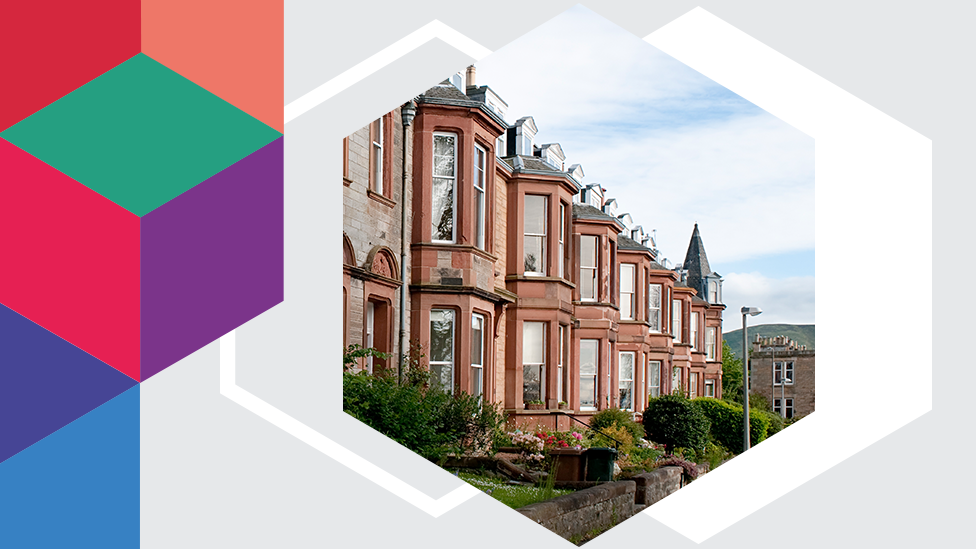Douglas Ross: 'I'll continue as leader' after election blow
- Published
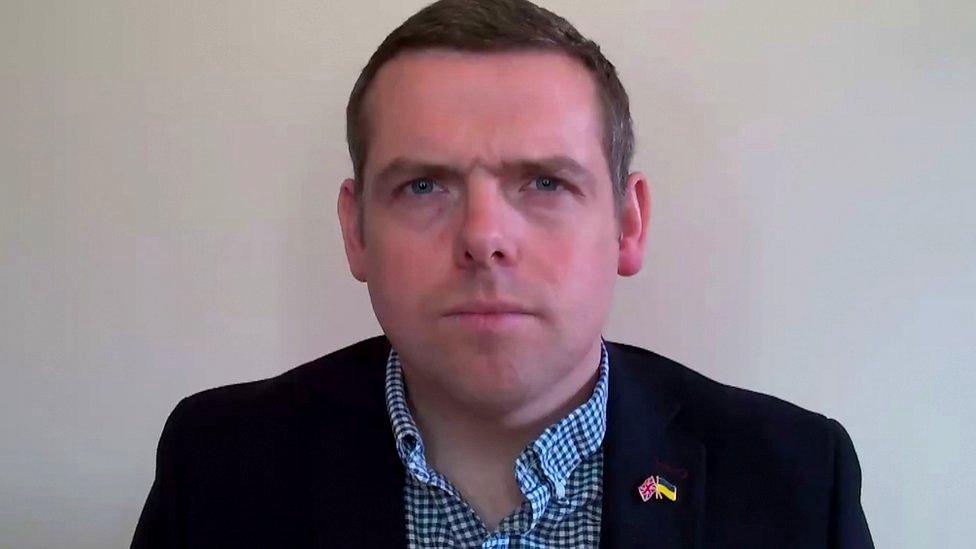
Douglas Ross said he was determined to continue as leader of the Scottish Conservatives
Scottish Conservatives leader Douglas Ross has no plans to quit as leader despite losing 60 councillors in the local elections.
The day after his party dropped to third place in Scotland , he said he would "try to do better" and continue fighting against the SNP.
The Moray MP told BBC Scotland he heard "loud and clear" the anger from voters over the Westminster party scandals.
His comments came as parties began to negotiate working together on councils.
Mr Ross told BBC Scotland: "I am absolutely determined to continue as the leader of the Scottish Conservatives because there is a lot of work we have to do to continue to fight the SNP to stop their distraction of national politics onto their obsession about independence and deliver for the people of Scotland.
"I also understand and accept criticism from colleagues. As leader of the party I am someone who hopefully listens when concerns are raised and I there are always issues where I can do better and I will always seek to do that going forward."
He added: "It's disappointing and we have lost some great councillors and some outstanding candidates haven't had the opportunity to serve their area but in parts of Scotland we have made gains."
Earlier, Conservative MSP, Craig Hoy, told BBC Radio's Good Morning Scotland programme that he retained absolute confidence in Douglas Ross.
The five parties have reacted to their results
He said: "I don't think we should be apportioning blame directly at this stage.
"The results are very disappointing. It was quite clear when I was making calls and on the doorsteps that Scottish voters, particularly Scottish Conservative voters, are very frustrated and quite angry at what they've seen coming out of Downing Street over the last five months or so.
"I think they were ready to give us a bit of a bloody nose and that, to some extent, is what happened."
He added: "I have absolute confidence in Douglas Ross as the Scottish leader. We couldn't have done any more to put out a positive campaign and message here in Scotland. Unfortunately, the drumbeat of what was going on elsewhere meant we couldn't get that message over on the doorsteps."


Losing more than 60 seats and slipping from second to third place in these elections is a significant setback for the Scottish Tories and their leader Douglas Ross.
While he has no intention of quitting, one MSP told me there was now an "undercurrent of unhappiness" with his leadership at Holyrood and that he would have to work hard to overcome that.
The senior MSP Liz Smith has publicly questioned his flip-flop over Boris Johnson's resignation, telling The Times he has to "explain why he is defending him as prime minister but blaming him for the result".
Former MSP Adam Tomkins has previously said Douglas Ross must "own the consequences" of backing the PM.
While there's disquiet, his predecessor Ruth Davidson has pointed out that the result is the second best the Tories have got in Scottish local government for decades and urged the party to "pull together".
There does not appear to be an organised attempt to topple Douglas Ross. No potential challenger has emerged. As one MSP put it: "If there's a plot to oust him, no-one's asked me to join".

Saturday saw the start of negotiations between parties to work together on Scotland's councils.
Most councils are not in the overall control of one party, and it could take weeks before the full picture of who will run Scotland's local authorities becomes clear.
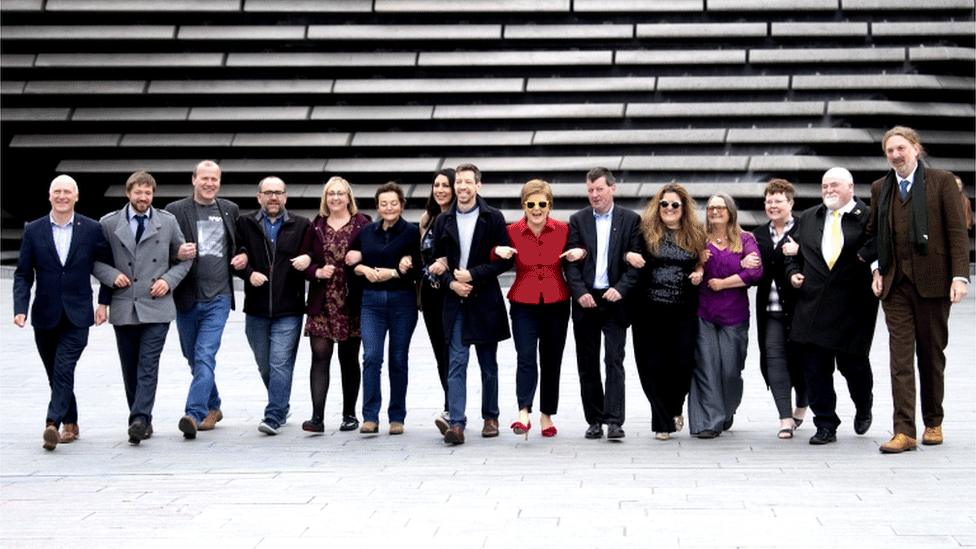
Nicola Sturgeon met her new Dundee councillors at the V&A on Saturday
The SNP finished as the biggest party, with Labour moving into second after the Conservatives suffered big losses.
Nicola Sturgeon's party took control in Dundee, while Anas Sarwar's Labour won a majority in West Dunbartonshire.
The first minister hailed the result as an "incredible outcome" for her party. She met the new SNP councillors in Dundee on Saturday morning.
On council arrangements, she said: "That's for local council groups to determine what's in the best interests of the areas they serve, but I'm in a partnership agreement in government in Holyrood with the Greens, so clearly I'd be very open to seeing that replicated in council areas in Scotland.
"But I think it's important that these decisions are driven locally and that we see parties that are prepared to recognise where they disagree but focus more on where they agree (and) come together to try to put arrangements in place that are in the best interest of the areas they serve."
Westminster leader Ian Blackford told Good Morning Scotland that the SNP was willing to work with parties with a "progressive" outlook.
He said: "I think that when I use the word progressive there is one party that doesn't fit that mould and that is the Conservative party. We will be extending the hand of friendship to others where we can work collaboratively and consensually to make sure that we put the interests of the voters and the communities first."
Scottish Labour said the election marked the start of its recovery.
The party's health spokeswoman, MSP, Jackie Baillie, told BBC Scotland there would be meetings this weekend on the way forward.
But she said there would be no formal coalitions.
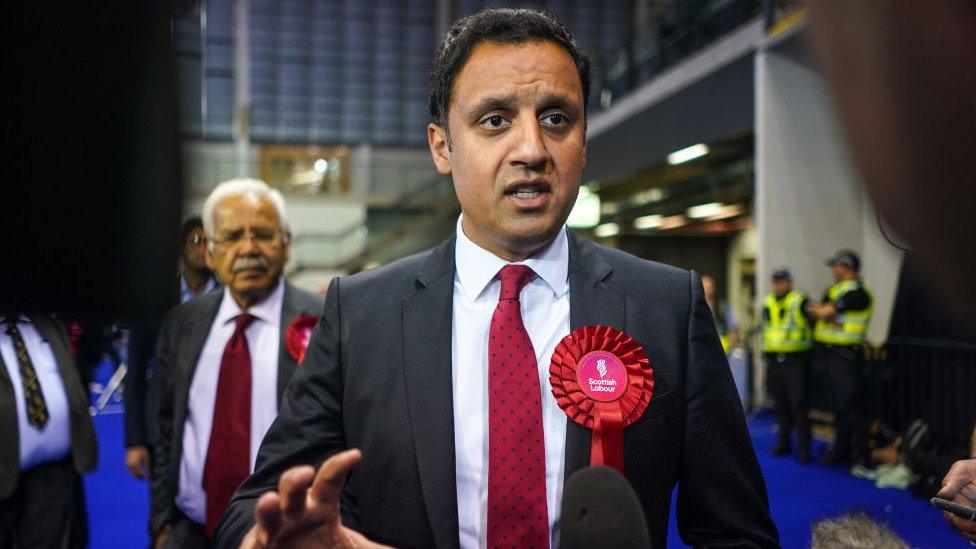
Anas Sarwar said that Labour was back in Scotland
"As the person who chairs this process over the course of this weekend, we will be bringing together councillors, their proposals, alongside the Scottish executive committee of the party to consider wat arrangements work best at a local level," she said.
"What we have ruled out are formal coalitions but there are a lot of other arrangements that people come to and have been enjoying in the past that make a lot of sense to those local communities. We want to reflect on those and do what is right for the local community."
Leader Anas Sarwar visited his new Labour-run West Dunbartonshire Council. He said: "Today there is no doubt that Scottish Labour is back.
"Nicola Sturgeon wants to pretend that the next general election is Scotland versus England, but it isn't - it will be Boris versus Britain, and Britain will win.
"For 15 years the SNP have tried to stoke up bitterness, division, and anger - but there is new hope, energy and positivity from Scottish Labour to challenge them. "
'Anxiety about deals'
Scottish Liberal Democrat leader, Alex Cole Hamilton, increased the party's council seat count by 20 to 87.
The party is in a strong position to work with other parties.
But he told Good Morning Scotland there were some parties he would have problems with.
"We have concerns [about] the focus of parties such as the SNP who are looking at an independence referendum as a principal priority, I would struggle to see how that shares the values we have of localism and driving down the cost of living, improving local services," he said.
"And with the Conservatives, I have anxieties about doing deals with a party that is sending refugees to Rwanda."
- Published6 May 2022
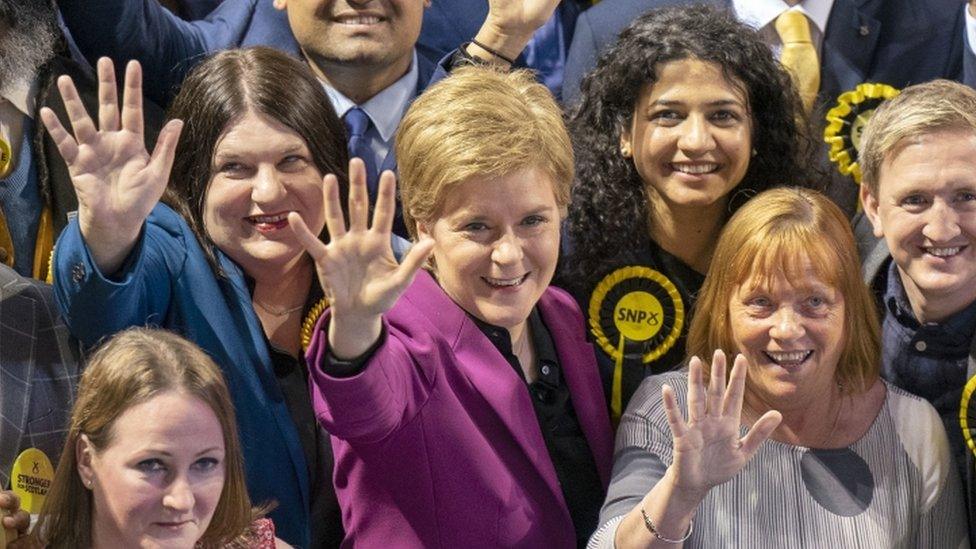
- Published6 May 2022
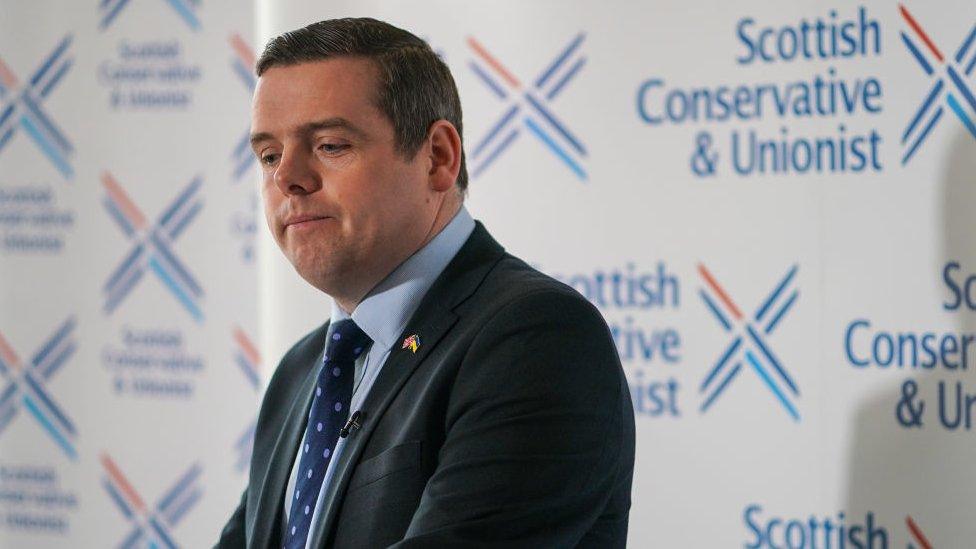
- Published6 May 2022
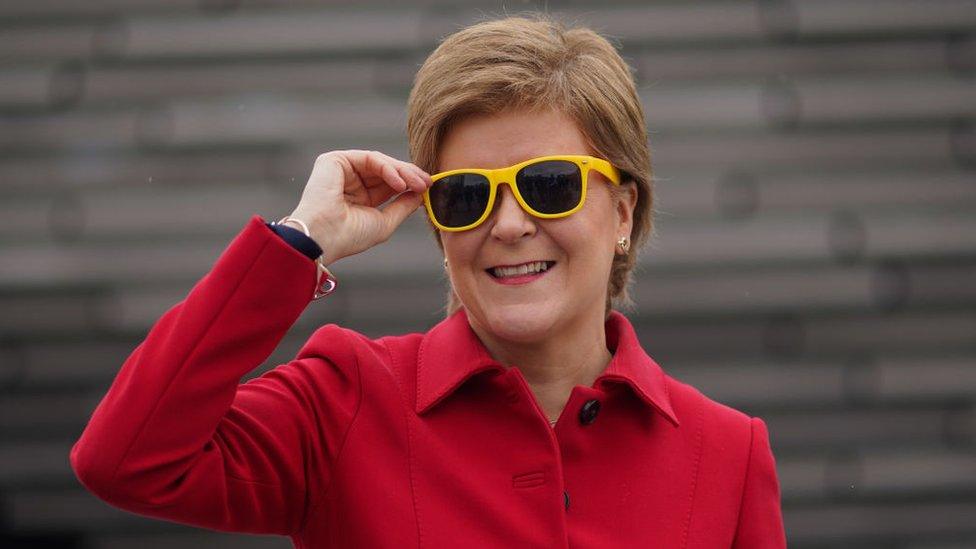
- Published4 May 2022
